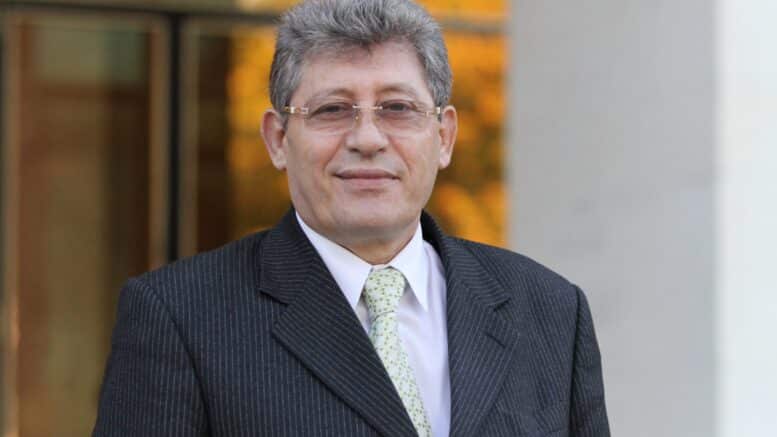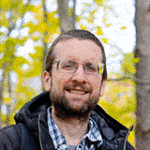The Common Roots of Moldovan Nationalism, Liberalism, and the Start of the Transnistrian Conflict
The following is part of a series of resources that seeks to explain Moldova’s current political situation through the biographies of the Moldovan politicians who helped shape it.
Note: for a much more in-depth look at Transnistria, please see this article devoted to the region on GeoHistory.
Also in this series:
- Introduction
- Voronin and the Communists
- Presidential Crises 2009-2018
- The Rise of Vladimir Plahotniuc
- Recent Scandals and Fallout
Mihai Ghimpu
Mihai Ghimpu is currently the leader of Moldova’s Liberal Party and part of Modova’s current ruling coalition. His main contributions to the country’s current political situation, however, were made during Moldova’s transition to an independent state.
Born in November, 1951, Ghimpu studied law at Moldova State University from 1974 to 1978. After a decade as a lawyer, Ghimpu cofounded the Popular Front of Moldova in 1988, a well-organized coalition movement that advocated for reunification with Romania and the promotion of Romanian culture and language as the majority culture and language of Moldova.
The nationalism of the Popular Front is one two major nationalist philosophies in competition in Moldova. Located on along what was Romania’s border with the USSR, Moldova largely shares Romania’s language and culture, but has, at times, been an independent principality, a part of the Russian empire, a part of Romania, and a part of the USSR. Most liberal nationalists argue that Moldova is Romania – and that the split really only occurred because of Soviet occupation. Communist and Socialist nationalists tend to argue that Moldova has an independent identity that draws from all three of these influences, including the most recent Russian and Soviet influences.
By 1989, Moldova’s Popular Front had the support of many moderate Communists already in parliament and, through organized protests, managed to push through a law that declared Latinized Moldovan as the official state language, rather than Cyrillic Russian.

An early protest of the Moldovan Popular Front, ca. 1989.
This and other nationalist policies sparked a political conflict that eventually led to Transnistria, a Russian-speaking territory, and Gaugazia, a Turkic-speaking territory, declaring independence in 1990. Moldova refused to recognize these declarations of independence and, as the crisis built, Moldovan authorities sent troops to Transnistria. After a brief skirmish in which civilians were killed, the military turned back.
1990 also saw Popular Front members, including Ghimpu, gain seats in parliament themselves. In that year, under glasnost, the USSR allowed non-Communists to run for election – but only as independents. No other political party or front was officially recognized besides the Communists. However, members of the Front together took 27 percent of the seats and, after joining with moderate Communists and other independents, formed a parliamentary majority that pushed the Moscow-oriented Communists into the opposition. Ghimpu was one of the politicians to vote for Moldova’s successful 1991 Declaration of Independence. The Communist Party of the USSR was dissolved and banned.

A map showing Moldova, its borders with Ukraine and Romania, and the two ethnic enclaves that have tried to declare independence from Moldova.
The situation with Gaugazia and Transnistria continued to build. Gaugazia was eventually brought back via peaceful negotiations that gave the territory some limited autonomy. However, armed conflict broke out again with Transnistria, eventually becoming a Civil War that was fought for several months in 1992. Transnistria was supported by the Russian Army in this conflict, eventually won de-facto independence (although without international recognition) and continues to be protected by Russian peacekeepers.
The Popular Front, despite its initial popularity, eventually fractured as this and other crises as well as internal party conflicts lead to a loss of public confidence. The front dissolved in 1993 and a new Party of Communists of the Republic of Moldova, promising to fix the situation and restore order, began gaining rapid popularity.
Ghimpu joined the Congress of Intellectuals (CI) in 1994, which gained parliamentary representation as part of a wider alliance called the Bloc of Peasants and Intellectuals. The “Peasants” were mostly collective farm heads seeking to maintain agricultural stability and their positions of power. The bloc won 9% of the vote that year, resulting in 11 parliamentary seats, or about 10%. Infighting eventually led to the implosion of the CI and, with it, the bloc it helped form, in 1997.
Ghimpu then moved to the Reform Party, which failed to pass the seven percent threshold in the 1998 elections, meaning that they gained no seats in parliament and Ghimpu lost his position there. Ghimpu was elected chairman of the Reform Party that year.
The Reform Party was renamed the Liberal Party in 2005. It supports liberal nationalism and campaigns on law and order, reliance on a market economy, and promotion of civil society, including business. It passed the threshold only in July 2009 as the once powerful Communists, unable to bring order back to the country, began slipping from power. The Liberals won 14 percent of the vote and 15 seats. In 2009, the Liberals became a founding member of the ruling Alliance for European Integration and Ghimpu secured the position of speaker of parliament as part of Alliance’s division of offices.
In the constitutional crisis that began in 2009, Ghimpu, as speaker of parliament and as dictated by Moldova’s constitution, assumed the office of acting president after the Communist Party boycotted liberal candidate Marion Lupu.
Ghimpu served as acting president until late 2010, and, although many expected him to continue pushing for Moldova’s reunification with Romania, Ghimpu decided against it, arguing that he didn’t have the proper authority to do so. He did, however, take many initiatives that infuriated the Communists – such as setting up a government commission to “study the crimes of the Soviet regime in Moldova,” instituting Soviet Occupation Day (a national holiday to remember those crimes), and unveiling the Monument to the Victims of the Soviet Occupation in central Chisinau where the main statue of Lenin previously stood.

A political ad for the Moldovan Liberal Party featuring Ghimpu
Although Ghimpu did manage to institute many symbolic acts, the rising crisis prevented solid policy decisions from being implemented. The country continued to stagnate and Ghimpu’s support slipped. In the early parliamentary elections of 2010, triggered by the constitutional crisis, the Liberal Party won just 10% of votes and 12 seats.
In May 2013, the Liberal Party suffered an internal power struggle between Ghimpu and Ion Hadârcă, former president of Moldovan Popular Front. Seven Liberal Party deputies split with the party to form The Liberal Reform Party, which remained part of the ruling pro-EU alliance. This drastically reduced Ghimpu’s political influence, leaving him with only five seats in parliament.
By the elections of 2014, however, infighting among other liberal groups caused general shifts in allegiance and support. Ghimpu aligned himself with mogul Vladimir Plahotniuc’s growing influence. The party rose again to secure a full 13 seats and joined with Plahotniuc’s Democratic party to form a ruling coalition as the Communists continued to hemorrhage support and the Liberal Democratic Party, formerly Moldova’s major liberal party, was wracked with corruption scandals.
Thus, Ghimpu and his ideals remain in power within the ruling coalition. However, Plahotniuc’s personal wealth and unorthodox, ambitious political style have lead critics to worry that Moldova may be taking another turn towards authoritarianism.

Ion Hadârcă was another early member of the Popular Front still active, although now on the sidelines of, Moldovan politics.
Ion Hadârcă
Ion Hadârcă is a Moldovan poet, journalist and politician. Though currently unrepresented in parliament, he leads the Liberal Reform Party, a group of deputies that broke with the Liberal Party in 2013.
Born in 1949 Sîngerei, a small town in central Moldova, Hadârcă published his first poem at age 16. He enrolled in the Ion Creangă State Pedagogical University after completing compulsory military service, graduated in 1974, and completed his doctoral studies at the Moldova Academy of Sciences’ Institute of Language and Literature in 1978.
Under the USSR, Hadârcă worked as an editor with a state publishing firm in Chisinau, but resigned in 1981 to protest censorship, which was tightening as state responded to the Polish Solidarity movement and growing general discontent on its borders. Hadârcă remained unemployed for two years, later finding work with the Children and Youth Writers’ Union of Moldova.
In 1989, Hadârcă cofounded the Popular Front of Moldova, the leading the coalition before the 1990 parliamentary elections, which, with glasnost, allowed independents to register. Popular Front members together took 27 percent of the seats and, joining with moderate Communists and other independents, formed a parliamentary majority that pushed the Communists into the opposition.
Like many of those leading the Moldovan independence movement, Hadârcă was well educated, liberal, and had a long history of dissent against the Soviets. However, neither he nor his movement proved capable of founding a country that could encompass its multiple nationalities and political beliefs.
Over the course of Hadârcă’s two terms in parliament, he saw the country he dreamed of building descend into conflict and gridlock. He retired from politics in 1998, returning to poetry composition and translating Russian prose. However, after a decade of inactivity, Hadârcă joined Mihai Ghimpu’s Liberal Party and was reelected to parliament in 2009.
After supporting a motion to replace Ghimpu as President of the Liberal Party with Dorin Chirtoacă (Ghimpu’s nephew) in April 2013, Hadârcă was expelled from the party, but retained his seat in parliament. The following month, he was joined by six other Liberal Party MPs who helped create the Liberal Reform Party which failed to gain representation in the 2014 parliamentary election.
Hadârcă is now focusing on working for the unification of Romania and Moldova, and has formed an international council to advance the cause with like-minded politicians from Romania.
This resource is based on one published by SRAS in 2013.




